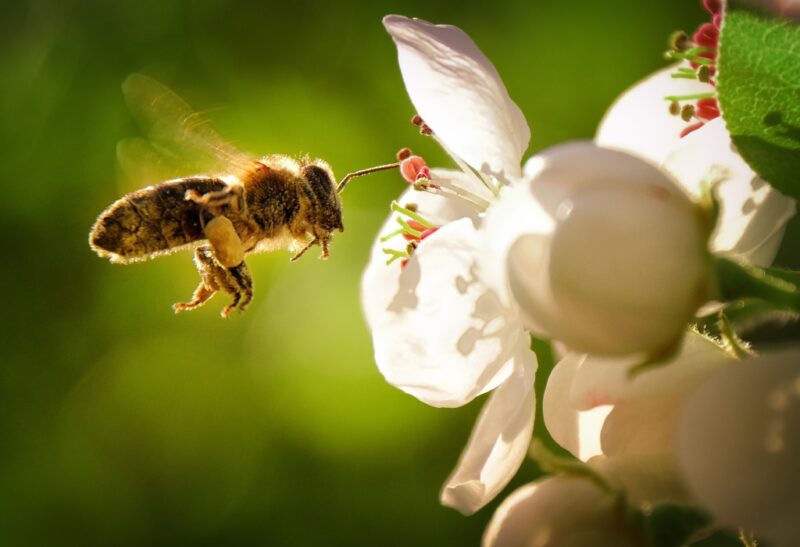We all need sleep to function properly, but have you ever wondered if bees sleep too? In this article, we delve into the fascinating world of bees and their slumber habits. Stick around to learn about their sleeping patterns and how important rest is for these buzzing insects.
Yes, bees do sleep. Similar to humans and other animals, bees require rest to maintain their overall health and productivity. They sleep to conserve energy and restore their bodies, ensuring they can continue to perform their essential tasks.
By continuing to read this article, you will learn about bees’ sleeping habits, when and where they sleep, and how to tell if a bee is sleeping. We will also discuss the importance of sleep for bees and some interesting facts about their nighttime behavior.
Table of Contents
Do Bees Sleep at Night?
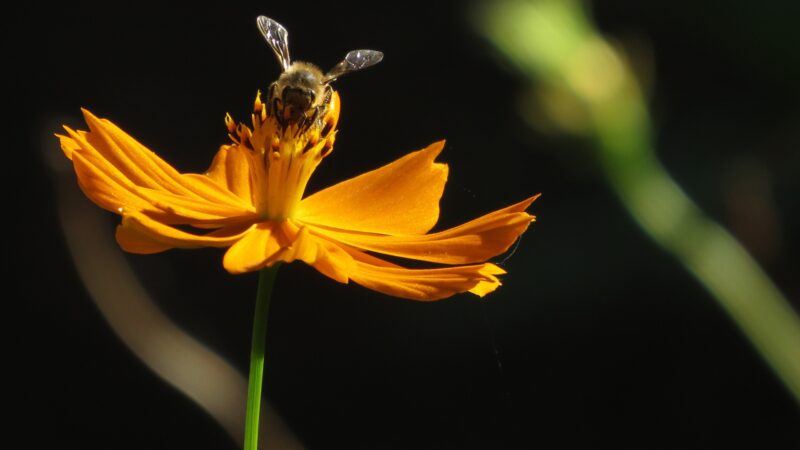
Do Bees Sleep in Flowers?
Bees, especially solitary species, have been known to sleep in flowers. They often choose flowers that provide shelter and protection from predators or unfavorable weather conditions. These sleepy bees can be found nestled inside the petals or hanging onto the flower’s stamen, taking a well-deserved break.
Do Queen Bees Sleep?
Queen bees sleep too! Although they have a slightly different routine from worker bees, they still require rest. Queen bees sleep less than workers, as they have the primary function of laying eggs and maintaining the hive’s population. Nonetheless, rest is still essential for their overall health and ability to reproduce.
When Do Bees Sleep?
Bees usually sleep at night or during periods of low light. Their sleep pattern is determined by their species, age, and role within the colony. For example, worker bees typically sleep at night, while the queen may have a more flexible sleep schedule.
Where Do Bees Sleep?
Bees sleep in various locations, depending on their type and role within the colony. Worker bees generally sleep inside the hive, resting on the honeycomb or near the hive entrance. Solitary bees, like the aforementioned flower sleepers, may find a cozy spot outside the hive in a protected area.
How Long Do Bees Sleep?
The length of a bee’s sleep varies depending on factors such as species and age. Younger worker bees tend to sleep less than older ones, as they have more energy and are involved in more hive-related activities. However, on average, worker bees sleep for about 30 to 90 minutes in a 24-hour period.
How Do Bees Sleep?
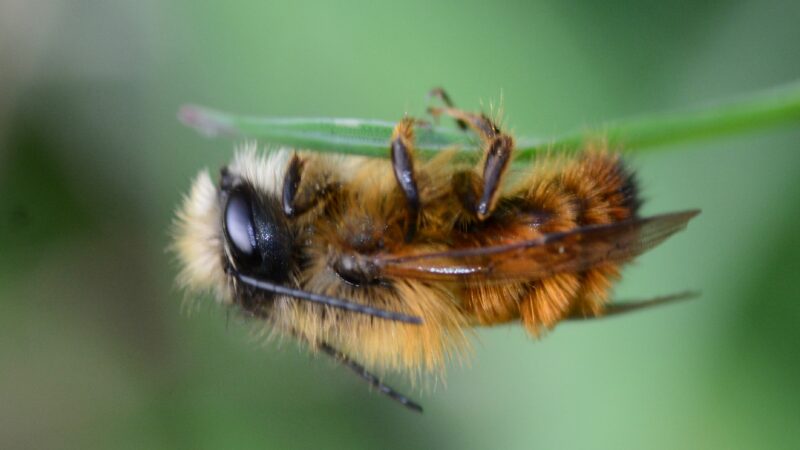
Bees don’t have eyelids like humans, so their sleep might not look like ours. Instead, they enter a state of rest where their body and antennae become relaxed, and their metabolism slows down.
How Can You Tell if a Bee Is Sleeping?
It’s not always easy to tell if a bee is sleeping. A sleeping bee will appear to be motionless and may have its head lowered or antennae drooping. Additionally, bees that are resting will often have a more relaxed grip on the surface they are clinging to.
Why Sleep Is Important for Bees?
Sleep is crucial for bees, as it helps them maintain their cognitive abilities, such as memory, learning, and decision-making. A well-rested bee is better equipped to perform tasks like foraging, navigating, and communicating with other bees. Inadequate sleep can negatively impact a bee’s ability to function effectively and efficiently.
Do Bees Sting at Night?
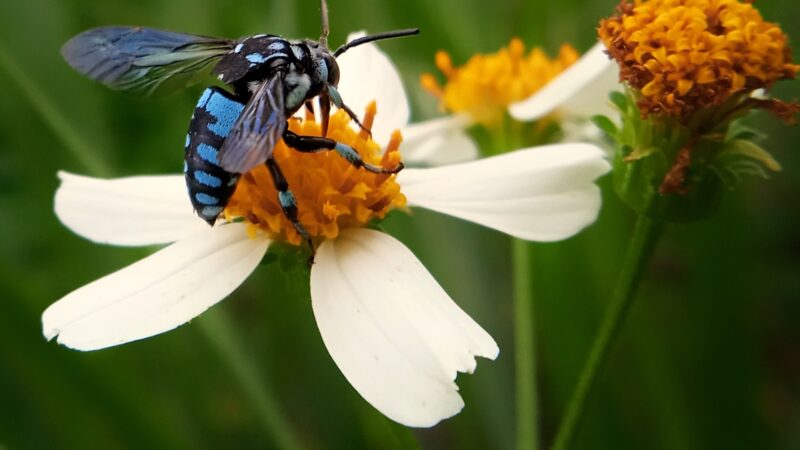
While bees are less active at night and usually resting, they can still sting if they feel threatened. It’s essential to approach bees with caution, regardless of the time of day.
Where Do Bees Live In the Winter?
During winter, bees stay inside their hive to maintain warmth and protect themselves from the cold weather. They form a cluster around the queen bee and work together to generate heat by shivering their muscles. This helps maintain the hive’s temperature and ensures its survival throughout the colder months.
When Do Bees and Wasps Sleep?
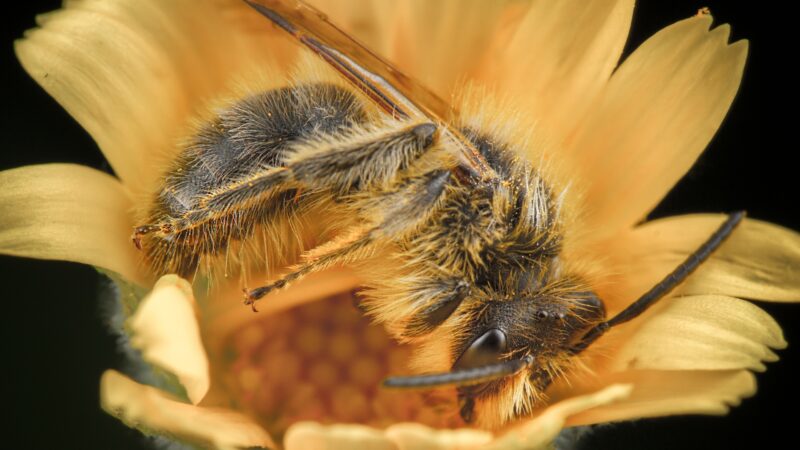
Like bees, wasps also sleep at night or during periods of low light. They, too, need rest to function effectively and maintain their cognitive abilities. Although their sleep patterns may vary depending on the species, both bees and wasps generally rest when it’s dark.
List of Sources
For some bees, flowers are a place to bed down. (2020). Oregon State University.
Where do bees sleep? Washington State University.
Budd, A. (2023). Where do bees go in the winter? University of Georgia.
